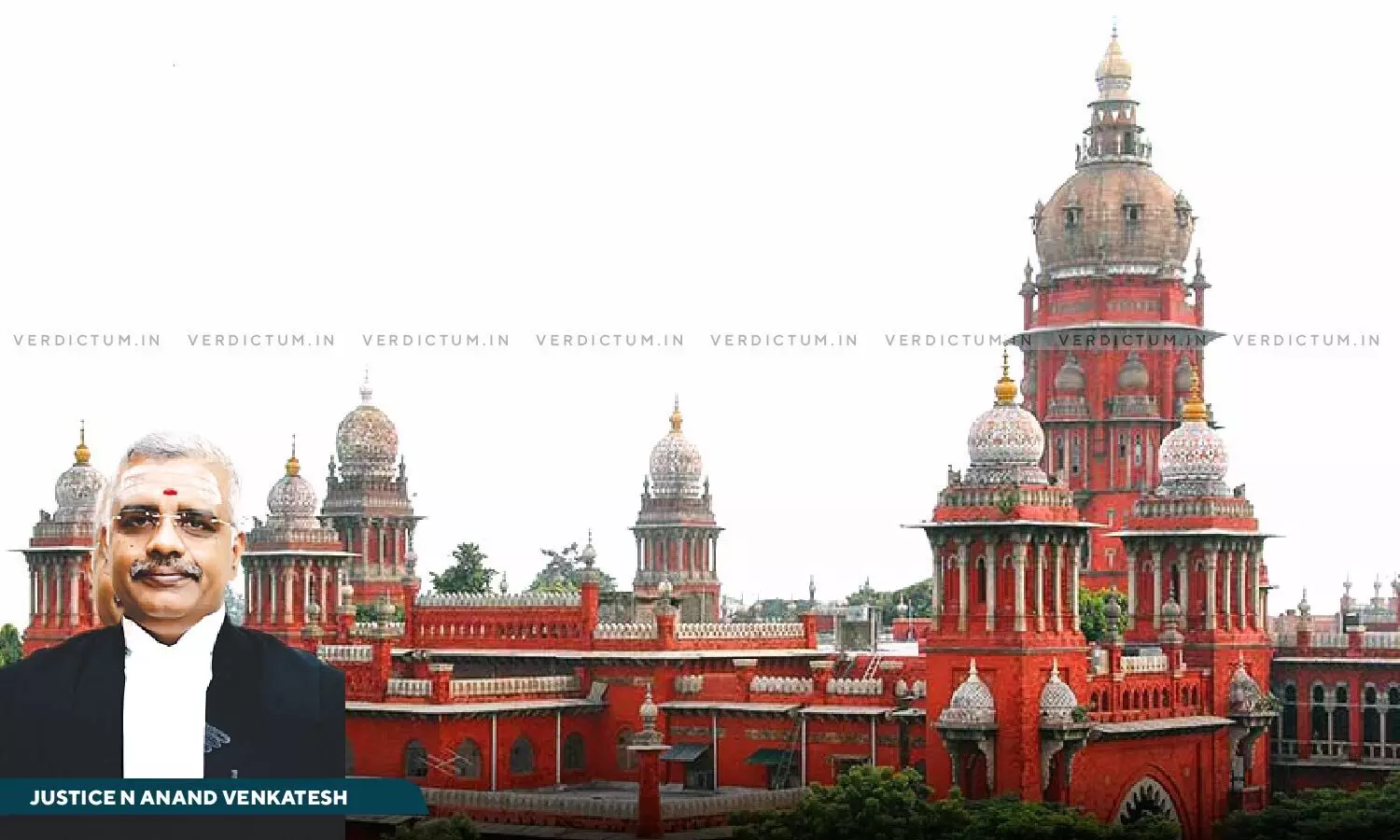
Justice N. Anand Venkatesh, Madras High Court
Division Bench Appears To Have Ignored That HC Is One Institution & Must Speak In One Voice: Madras High Court’s Single Bench
 |
|The High Court observed that if the Division Benches start giving contradictory directions and speak in different voices, the very edifice of the High Court, as an independent institution, will be put to peril.
The Madras High Court’s Single Bench in a case criticized the Division Bench, saying that it appears to have ignored that the High Court is one institution and must speak in one voice.
The Court was deciding a batch of Writ Petitions in which the issue was related to the grant of patta for the grama natham lands.
A Single Bench of Justice N. Anand Venkatesh remarked, “… the Division Bench, in the case of Abananthan, issued a direction, which is directly in conflict with the declaration of law in the case of Babu. Such a direction is unheard of in the annals of this Court since it directs the Government to issue a fresh circular on the lines of an earlier circular, which has already been quashed as unconstitutional and that too by a Coordinate Division Bench. The Division Bench appears to have ignored the fact that the High Court is one institution and must speak in one voice. In matters of law, it is all the more important that the High Court is univocal and not polyvocal.”
The Bench was of the view that if the Division Benches of the High Court start giving contradictory directions and speak in different voices, the very edifice of the High Court, as an independent institution, will be put to peril.
Advocates N. Manokaran, A. Parthasarathy, R. Sathishkumar, and Vijayakumari Natarajan represented the Petitioners while State GP Edwin Prabhakar and SGP A. Selvendran represented the Respondents.
Factual Background
In the lead case, the properties along with vast extent of other properties were owned by Petitioner's grandfather. His grandfather constructed a house in a portion of the subject properties and the remaining portion was kept vacant. The Petitioner's grandfather died leaving behind him four sons and three daughters. There was a family arrangement entered into among the co-sharers vide Partition Deed. Further, wife of his deceased paternal uncle was given only life interest and after her death, the properties would devolve around the Petitioner’s father and his paternal uncle. During the UDR proceedings, the properties were classified as grama natham and were subdivided. Thereby, the house portion was given and the vacant lands were given. The remaining properties that were owned by the Petitioner’s father, his paternal uncle, and the widow of his paternal uncle were settled in favour of a person who was none other than the son of the Petitioner’s paternal aunt.
Later, the Petitioner applied for the grant of patta in respect of the properties. Based on that, a report was called for from the concerned Revenue Tahsildar, who also recommended for the grant of patta. However, the Commissioner of Land Administration, vide proceedings, rejected the claim made by the Petitioner. Being aggrieved, he filed a Writ Petition before the High Court which was allowed by a Single Judge, directing the concerned Revenue Tahsildar to pass Orders within three months. While dealing with the said Writ Petition, the Single Judge placed specific reliance upon the earlier Orders with respect to the issuance of patta for grama natham lands. Thereafter, by the impugned Order, the Revenue Tahsildar once again rejected the claim made by the Petitioner on the ground that he had no power to grant patta for the grama natham lands beyond three cents. Challenging the same and for a consequential direction to the Respondent to grant patta for the grama natham lands, Petition was filed.
Reasoning
The High Court after hearing the contentions of the counsel, noted, “It is very unfortunate that the Division Bench, in the case of Anbananthan, has thrown all the norms of judicial propriety to the winds and has virtually directed the State to flout the orders of the earlier Division Bench in the case of Babu by issuing a fresh circular on the lines of an earlier circular, which had been declared unconstitutional. In the considered opinion of this Court, such a direction could not have been issued by a Coordinate Bench ignoring a declaration of law made by an earlier Division Bench.”
The Court added that the directions of the Division Bench, in the case of S.Anbananthan v. District Collector (2024), in paragraph 79(4), are wholly void and must be disregarded as one without jurisdiction.
Furthermore, the Court said that it is not open to a Division Bench to disregard let alone circumvent the law declared by the earlier Division Benches on a question of law.
“In the considered view of this Court, the ceiling of 3 cents prescribed under the RSO is applicable only to assignment of unoccupied natham and not for occupied natham, which, as held above, is the private property of the occupant”, it concluded.
Accordingly, the High Court allowed the Writ Petition, set aside the impugned Order, and directed the Respondent to conduct an inquiry and ascertain the grama natham lands actually in possession and enjoyment of the Petitioner and his family.
Cause Title- N.S. Krishnamoorthi v. The District Collector & Ors. (Neutral Citation: 2025:MHC:790)